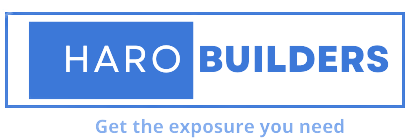
Struggling to elevate your website’s search engine ranking despite quality content? You’re not alone, 66.31% of pages have zero backlinks, a critical factor in SEO success. Moreover, the top result in Google has an average of 3.8 times more backlinks than those in positions two to ten. This underscores the importance of effective link-building strategies, which is why having a link building specialist is important.
As a link-building specialist, mastering SEO involves acquiring high-quality backlinks, understanding search intent, and staying updated with algorithm changes. This comprehensive guide provides actionable insights to enhance your link-building expertise and improve your site’s visibility.
What Does a Link Building Specialist Do?
A link building specialist plays a pivotal role in improving a website’s search engine rankings by acquiring high-quality backlinks. Their primary responsibility is to implement effective link building strategies that align with SEO best practices to enhance online visibility. A specialist meticulously identifies link opportunities and builds relationships with website owners to secure high-quality links. They leverage tools like Ahrefs to analyze a site’s backlink profile, monitor performance, and ensure alignment with domain authority goals.
Link-building campaigns are crafted to include broken link building techniques and outreach to bloggers or relevant industry professionals. They emphasize the significance of fostering partnerships within digital marketing to build sustainable connections. Moreover, these professionals ensure keyword research is seamlessly integrated into the overall strategy, ensuring search engine algorithms recognize the site as authoritative.
Essential Skills for a Successful Link Building Specialist:
Mastering Communication Skills:
Effective communication is pivotal for a link-building specialist to foster meaningful collaborations and achieve goals. Specialists must articulate their intentions clearly while maintaining professionalism in all interactions. By tailoring their messaging to suit different audiences, they can build trust and encourage positive responses. This skill also extends to resolving potential conflicts or objections tactfully, ensuring a smooth workflow.
Research and Analytical Thinking Are Crucial:
Link-building specialists must excel in research and analysis to identify the most valuable opportunities. They should analyze potential partner websites, assess domain authority, and evaluate content relevance. Using data-driven insights enables them to prioritize efforts and maximize results. Additionally, consistent performance tracking ensures strategies remain effective and adaptable.
Understanding SEO Fundamentals:
A robust understanding of SEO principles is indispensable for link-building professionals aiming to drive measurable results. They need to grasp the significance of backlinks, anchor text, and keyword optimization. Keeping up with algorithm updates allows them to refine their strategies accordingly, ensuring their efforts align with evolving search engine standards.
Creativity in Content Strategy Is Necessary:
Creativity plays a crucial role in designing compelling content strategies that attract backlinks naturally. Specialists should ideate unique content types like case studies, infographics, and expert interviews. By collaborating with content creators and employing innovative storytelling methods, they can enhance the shareability and value of their campaigns.
Organizational Skills Help Manage Workflows:
Managing multiple projects and deadlines requires impeccable organizational skills to maintain productivity and efficiency. Link builders should rely on tools and systems to streamline their workflows, track progress, and prioritize tasks. Being organized ensures consistent follow-ups, timely deliverables, and overall success in campaigns.
Networking and Relationship Building:
Building strong relationships with industry professionals and stakeholders is fundamental to long-term link-building success. Networking allows specialists to access new opportunities and cultivate trust within the community. Personalized outreach and ongoing engagement are essential components of forming meaningful and mutually beneficial connections.
Problem-solving and Adaptability Are Key:
The ability to solve problems and adapt to challenges is a hallmark of an effective link-building specialist. They should proactively address issues such as low response rates or changing SEO landscapes. By experimenting with alternative approaches and learning from past experiences, specialists can consistently optimize their efforts.
Technological Proficiency Simplifies Tasks:
Technological expertise enables link-building specialists to execute tasks efficiently and accurately. They must familiarize themselves with tools for prospecting, tracking backlinks, and analyzing competitor activity. Leveraging automation and analytics platforms can significantly enhance productivity, allowing specialists to focus on more strategic initiatives.
Challenges and Solutions in Link Building:
Link building remains a cornerstone of successful SEO strategies but often presents unique challenges. Understanding these obstacles and addressing them strategically is vital for achieving desired outcomes in digital marketing. Businesses need to prioritize a balanced approach while implementing solutions to overcome these hurdles effectively.
The Challenge of Low-Quality Links:
Low-quality backlinks can harm a website’s credibility and rankings significantly. Websites that acquire links from spammy or irrelevant sources risk penalties from search engines. Additionally, these links often fail to bring value in terms of referral traffic or authority.
To address this, focus on quality over quantity when building backlinks. Conduct thorough audits to identify and disavow harmful links using tools like Google’s disavow feature. Collaborate with trusted websites in your industry to ensure your backlinks come from authoritative and relevant sources.
Difficulty in Acquiring Natural Links:
Securing organic backlinks without extensive outreach is undeniably challenging for most new or niche websites. Many businesses struggle to create content that naturally attracts links due to limited expertise or resources. Moreover, competitors often dominate the space with established authority.
To overcome this, invest in creating valuable and unique content tailored to your audience’s preferences. Utilize data-driven insights or industry trends to craft compelling pieces that naturally earn links. Collaborating with influencers or niche thought leaders can also amplify reach and attract quality backlinks organically.
Limited Outreach Success:
Outreach campaigns often yield low success rates due to generic messaging or poor targeting. Many emails go unanswered because they fail to resonate with recipients. Additionally, high competition in outreach spaces makes it harder to secure responses.
Personalizing outreach emails is crucial to improving response rates. Tailor messages to align with the recipient’s interests or past collaborations. Diversify outreach methods by engaging on social media or networking at industry events. Combining creativity with strategic targeting can significantly enhance your outreach success.
Overcoming Budget Constraints:
Limited budgets present significant obstacles for small businesses and startups in executing effective link-building campaigns. Premium tools, large-scale outreach, and content creation may feel unattainable without sufficient financial resources.
However, effective link building doesn’t always require substantial expenditure. Start by leveraging free or low-cost SEO tools for basic link analysis and monitoring. Update existing content with recent link-building stats or trends to enhance its link-worthiness. Focus on guest posting or partnerships with relevant websites that align with your goals.
Keeping Up with Algorithm Changes:
Frequent updates to search engine algorithms can disrupt previously successful link-building strategies. Failing to adapt to these changes often results in decreased rankings and ineffective efforts. Staying uninformed about updates poses a risk to maintaining a competitive edge.
Combat this challenge by regularly staying informed about algorithm updates and search engine guidelines. Diversify your link-building strategies to ensure they remain adaptable to shifts in the SEO landscape. Routine performance reviews and tweaks based on updated best practices can mitigate the risks of algorithmic changes.
Avoiding Over-Optimization:
Over-optimization occurs when excessive link-building efforts disrupt a website’s natural profile. Over-reliance on specific tactics, such as exact match anchor texts or link farming, may lead to penalties. Furthermore, overly aggressive approaches can appear manipulative to search engines.
Maintain a balanced approach by diversifying anchor texts and ensuring backlinks come from credible sources. Avoid shortcuts like buying links or engaging in private blog networks that could damage your reputation. Focus on establishing a sustainable link-building process centered on quality and relevance.
Managing Time Effectively:
Link building is a time-intensive process that often competes with other marketing priorities. The manual nature of tasks such as research, outreach, and follow-ups can be overwhelming, especially for small teams, and poor time management can quickly lead to missed opportunities and reduced campaign impact.
To optimize time management, automate repetitive tasks using reliable tools for prospecting and tracking. Delegate tasks effectively by assigning responsibilities to team members with relevant expertise. Integrating link-building activities with broader campaigns can also save time while boosting efficiency, and tracking hours with tools like My Hours can help teams see where time is spent and adjust workloads accordingly.
Adapting to Industry Competition:
In highly competitive industries, standing out and earning high-quality backlinks can be incredibly challenging. Competitors with established authority often dominate valuable opportunities, leaving little room for smaller players to thrive.
To tackle this, identify gaps in competitors’ strategies to exploit untapped opportunities. Focus on creating original, data-driven content that appeals to authoritative websites. Building partnerships with complementary brands for mutual link-building benefits can also strengthen your position in a crowded space.
Core Strategies Every Link Building Specialist Should Master:
Building strong relationships with niche influencers:
Establishing connections with influencers can lead to high-quality backlinks. By identifying key players in your industry through tools like BuzzSumo, engaging with their content meaningfully, and offering value through collaboration, you can create opportunities for mutual benefit. These relationships often translate into backlinks that boost authority and credibility.
Crafting irresistible and link-worthy content assets:
Creating compelling content is essential for attracting backlinks. Focus on developing guides, infographics, and original research that provide value to your audience. Additionally, high-quality visuals and timely content related to trending topics increase shareability and naturally attract links from authoritative websites.
Leveraging broken link opportunities effectively:
Broken link building is a proactive approach to earning backlinks. By identifying broken links on relevant websites using tools like Ahrefs, you can offer your content as a replacement. Personalized outreach explaining how your link improves their content often yields positive results.
Guest posting for reputable and authoritative sites:
Guest blogging remains a powerful method for link building when done strategically. Focus on contributing to websites with high domain authority by offering unique insights and solutions. Building strong relationships with editors and content managers can pave the way for ongoing collaboration and backlink opportunities.
Utilizing HARO to connect with journalists and earn backlinks:
Help A Reporter Out (HARO) offers a unique chance to secure backlinks by responding to journalists’ queries. Tailor your responses to align with your expertise, ensuring they are concise and professional. Timely and relevant contributions increase the likelihood of being featured and linked in their articles.
Optimizing outreach campaigns for maximum impact:
Outreach is a cornerstone of successful link-building strategies. Customize your communication based on the recipient, whether they are bloggers, journalists, or influencers. Highlight the value your content provides and monitor campaign results using tools like Hunter or BuzzStream to refine your approach over time.
Harnessing skyscraper techniques to outrank competitors:
The skyscraper technique involves creating superior versions of popular content. Start by analyzing high-performing articles in your niche and enhancing them with additional data, visuals, and insights. Once your content is ready, promote it to websites linking to the original piece to encourage them to link to your improved version.
Monitoring and adapting to algorithm changes for sustainability:
Google’s algorithms constantly evolve, making it essential to stay updated with the latest changes. Regularly assess how updates affect your rankings and adapt your strategies accordingly. Staying informed ensures your link-building efforts remain effective and compliant with current SEO best practices.
The Future of Link Building as Part of SEO:
The future of link building in SEO depends on evolving strategies and smarter execution. Skilled link building specialists now focus on securing high-quality placements that drive traffic and boost rankings. Tools like Ahrefs help identify backlink opportunities, but the trend is shifting toward building natural links and developing genuine relationships with site owners. Quality over quantity is now the standard, with campaigns designed to support broader business goals.
Expertise in SEO, outreach, and innovative methods like HARO link building is essential. Guest posting also remains a reliable way to earn organic backlinks and improve domain authority. Today’s successful link building aligns closely with content marketing strategies, focusing on valuable, shareable content that attracts links naturally.
Creating a diverse, high-quality link profile is key to improving search visibility. Businesses should look for link builders who understand advanced tactics and prioritize relationship building. As search engines evolve, link acquisition strategies must also adapt to maintain long-term effectiveness and visibility.
Conclusion:
Mastering SEO as a link-building specialist requires dedication, strategic planning, and continuous learning. By focusing on acquiring quality backlinks and understanding search intent, you can significantly improve your website’s search engine ranking. Remember, the digital landscape is ever-evolving; staying updated with the latest trends is crucial. What strategies will you implement to enhance your link-building efforts?
FAQs:
Why are backlinks important? They signal to search engines that your content is valuable, enhancing your site’s authority and ranking.
How can I acquire high-quality backlinks? By creating valuable content, engaging in guest blogging, and building relationships with industry influencers.
What are some common link-building strategies? Content creation, outreach, broken link building, and utilizing social media platforms.
How do backlinks affect search engine rankings? They serve as endorsements, indicating to search engines that your site is trustworthy and relevant.
What is anchor text, and why does it matter? It’s the clickable text in a hyperlink; relevant anchor text can improve keyword rankings.



